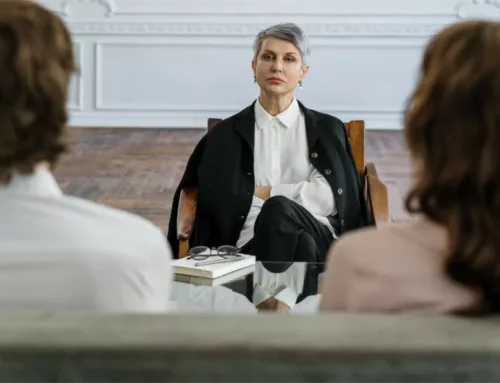As couples’ therapists, we’re all welcoming new couples through our doors every day.
Most, if not all, come to us because they’re having problems in their relationships and need our help to solve their issues.
Couples’ therapy requires absolute commitment from both sides.
You could be forgiven for thinking that signing up for couples’ therapy and attending sessions is a sure sign of both partners’ commitment to restoring and enhancing the connection between them.
But what if they seem checked out of the relationship before you even begin working with them?
Alternatively, the apparent lack of commitment may only be coming from one partner who continues to sit on the fence during your sessions.
With so many variables involved in couples’ therapy and relationships in general, it can be tricky enough to help couples who are committed.
If one or both partners seem as if they’re over it from day one, you may feel like you’re hitting a brick wall and the relationship is beyond saving.
Thankfully, that isn’t always the case. It just means your work with such couples will take on a slightly different form, and the secret to success can be found a little off the beaten track.
Keep reading to find out how you can rise to this kind of challenge.
The Zero-Sum Game
If you’re working with a couple who don’t seem to want to stay together, you might be wondering why they keep coming back to couples’ therapy.
Don’t forget, on average, a couple experiences troubles in their relationship for around two years before seeking help. You represent their last bastion of hope, which goes some way to explain why they might seem like they’re giving up already.
Simply put, they’ve probably been working at it for a while, which can be extremely draining.
Ultimately, there must be at least a small shred of hope that the relationship can be saved.
As their therapist, it’s your job to inspire them to keep going.
In Dr. John Gottman’s books What Makes Love Last and Science of Trust, he wrote about the concept of the zero-sum game and how it relates to relationships.
For our purposes, the zero-sum game refers to individuals who emphasize “I” over “we.”
Zero-sum game players believe that contributing to their relationship somehow detracts from themselves and their own wellbeing — their partner’s win is their personal loss.
Couples who play the zero-sum game are essentially keeping score with one another. Something as simple as one partner making the other lunch scores them a point — one they will expect to be repaid in the near future.
To put it in simpler terms:
- Their partner does something for them. +1.
- They do something for their partner. -1.
- And the relationship sits in the middle — at zero.
Zero — pretty difficult to feel good about that, right?
Dealing with a couple of zero-sum gamers can be incredibly frustrating for a therapist.
So, what can you do to remind them why they got together in the first place?
Who’s Working Harder — You or Them?
In these cases, it’s a good idea to take a step back and examine the situation from the outside.
We want to cultivate a situation where the couple is doing the work for themselves.
If you’re having to drag your couple kicking and screaming into a better place where they can work through their issues, you may feel like you’re failing or that you need to be working harder.
Fundamentally, a couple must be willing to come to therapy, commit to it, and work to solve the problems between them. They have to want to want to make a change.
If you’re working harder than them, that’s a problem the three of you will need to solve together to ensure your journey is a successful one.
The fire is there, no matter how much the flames may have died down. All it needs is a little spark.
Remind your couple of the reason they became a couple in the first place — because they liked each other, long before they forged a deeper emotional bond.
It can help depressurize the situation to shift focus from matters of love and task your couple with simply working on their friendship.
The best way to go about helping a couple rekindle their friendship is to work through a friendship intervention program with them in the therapy room.
Simply giving them the work to do at home can leave any kind of intervention open to sabotage, so make sure you work on this as a team while they’re in the room with you.
Couples often enter into therapy with a mostly negative mindset. We find concentrating on the friendship first can help get them excited about the work you’re doing together.
Be on the lookout for opportunities to apply this to your program and see where it takes you.
Keep an eye on the “Gottman Method Therapy” Facebook group for more advice on how you can manage complex cases like these. If you have any comments or questions you’d like us to cover in future sessions, feel free to send us a private message.






Leave A Comment